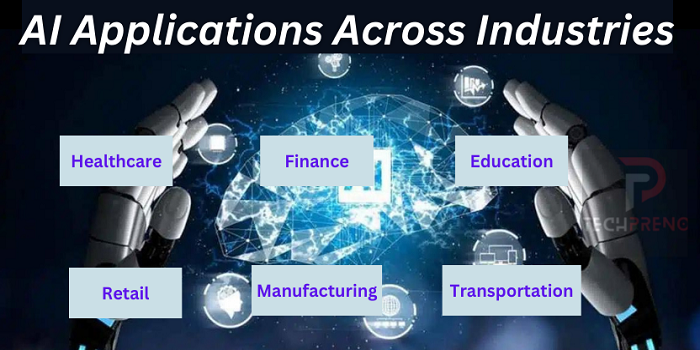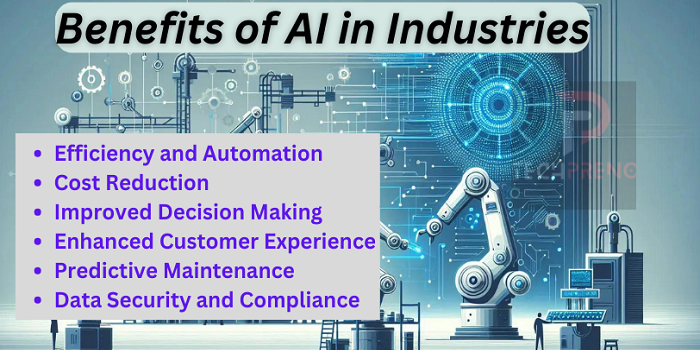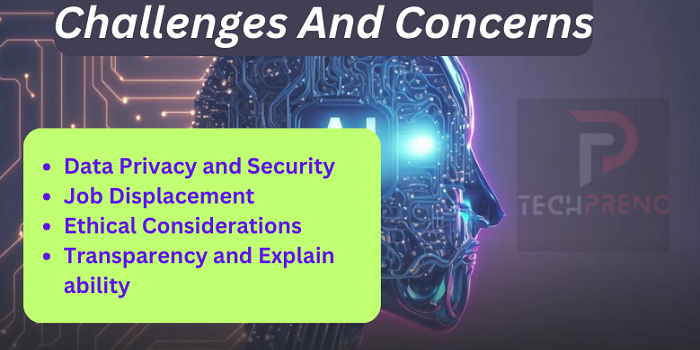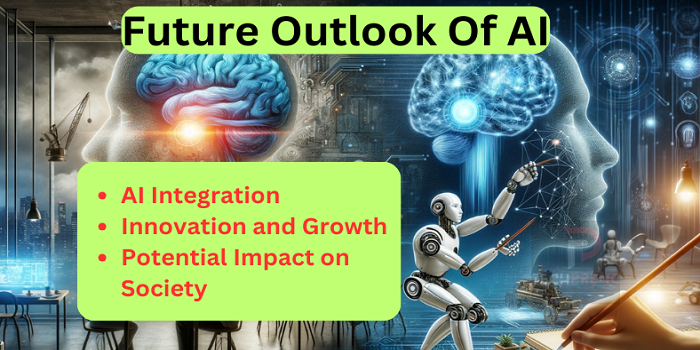Artificial Intelligence (AI) has emerged as a transformative force across various industries, revolutionizing processes and driving innovation. As from healthcare to finance, manufacturing to retail, AI is reshaping how businesses operate, delivering unparalleled efficiencies and unlocking new opportunities for growth. Here we will give to comprehensive overview how artificial intelligence is transforming industries.
Table of contents
Artificial Intelligence (AI)
AI refers to the simulation of human intelligence processes by machines, enabling them to perform tasks that typically require human intelligence. This includes learning, reasoning, problem-solving, perception, and language understanding.

In addition advancements in AI technologies such as machine learning, natural language processing (NLP), and robotics have propelled its adoption across industries. It is helping human being in performing complex tasks in less time with more accuracy.
Below we will disclose the involvement of Artificial Intelligence across numerous industries.
AI Applications Across Industries

Healthcare
In healthcare, AI is used for diagnosis and treatment recommendation, medical imaging analysis, drug discovery, personalized medicine, and patient management systems. It enhances healthcare outcomes, improves efficiency, and reduces medical errors.
Finance
Further the finance sector utilizes AI for fraud detection, risk assessment, algorithmic trading, customer service automation, and personalized financial advice. AI-powered analytics provide insights for better decision-making and operational efficiency.
Manufacturing
Furthermore AI revolutionizes manufacturing with predictive maintenance, supply chain optimization, quality control, autonomous robots, and smart production systems. It enables agile and responsive manufacturing processes.
Retail
Moreover retailers leverage AI for customer analytics, demand forecasting, personalized recommendations, inventory management, and chatbots for customer support. AI enhances customer experiences and drives sales growth.
Transportation
In transportation, AI powers autonomous vehicles, route optimization, traffic management, predictive maintenance for fleets, and logistics planning. It improves safety, efficiency, and sustainability in transportation networks.
Education
Finally AI transforms education through personalized learning platforms, adaptive assessments, virtual tutoring, learning analytics, and automated administrative tasks. It enhances student engagement and improves learning outcomes.
Benefits of AI in Industries
The widespread adoption of AI offers numerous benefits to industries:

| Benefit | Explanation |
| Efficiency and Automation | AI automates repetitive tasks such as data entry, analysis, and reporting, reducing human errors and freeing up employees for more strategic activities. |
| Cost Reduction | Through process optimization and resource allocation, AI helps minimize operational costs, including labor expenses and production inefficiencies. |
| Improved Decision Making | AI systems analyze vast amounts of data quickly and accurately, providing actionable insights for better strategic decision-making and risk management. |
| Enhanced Customer Experience | AI-powered chatbots and personalized recommendations improve customer interactions, leading to higher satisfaction, loyalty, and retention rates. |
| Predictive Maintenance | AI algorithms predict equipment failures and maintenance needs, reducing downtime, optimizing asset performance, and extending machinery lifespan. |
| Data Security and Compliance | AI tools strengthen cybersecurity measures by detecting and responding to threats in real time, ensuring data integrity, and facilitating regulatory compliance. |
Challenges and Concerns

- Data Privacy and Security
- Challenge: AI systems require sensitive data, raising privacy and cybersecurity concerns.
- Solution: Implement robust data encryption, access controls, and regular security audits.
- Job Displacement
- Challenge: AI-driven automation may lead to job displacement, necessitating workforce reskilling.
- Solution: Invest in training programs for AI-related skills and promote a culture of lifelong learning.
- Ethical Considerations
- Challenge: AI algorithms must address biases and ethical dilemmas in decision-making.
- Solution: Develop AI ethics frameworks and prioritize fairness, transparency, and accountability.
- Transparency and Explain ability
- Challenge: AI algorithms lack transparency and explain ability in their decision processes.
- Solution: Implement explainable AI techniques for clear explanations and justifications.
Future Outlook
As the future of AI in industries is promising, with ongoing developments and advancements:

- AI Integration: Firstly AI will become more integrated into business operations, driving innovation and competitive advantage.
- Innovation and Growth:Secondly AI fuels innovation, leading to the development of new products, services, and business models.
- Potential Impact on Society: Finally AI’s societal impact will evolve, requiring ethical frameworks, regulations, and responsible AI practices.
Conclusion
Artificial Intelligence is a transformative force that is reshaping industries, driving efficiencies, and unlocking new opportunities for growth. And its impact on healthcare, finance, manufacturing, retail, transportation, and education is profound, offering benefits such as efficiency gains, cost reduction, improved decision-making, and enhanced customer experiences.
However, challenges such as data privacy, job displacement, and ethical considerations must be addressed as AI continues to evolve.
Read More How Artificial Intelligence is Transforming Industries
FAQs on AI’s Impact on Industries
AI improves healthcare outcomes through faster and more accurate diagnosis, personalized treatment plans, and predictive analytics for early disease detection.
Risks include data security breaches, algorithmic biases in decision-making, regulatory compliance challenges, and job displacement due to automation.
While AI automates many tasks in manufacturing, human oversight and skilled roles are still essential for complex decision-making, creativity, and problem-solving. Therefore, it is not easy for AI to completely replace human efforts.
Businesses should ensure AI systems are fair, transparent, and unbiased, protect user data privacy, and uphold ethical standards in decision-making processes.

